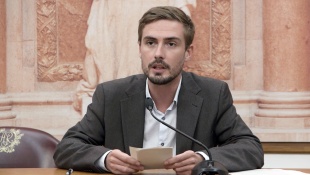The successive increases in fuel prices are a matter of great concern for most of the Portuguese and, due to the impacts they have on the entire economy, call into question the need for recovery considering the situation that the country is still facing.
The PCP considers it is essential to take urgent measures to counter these price increases, combining the fight against price speculation with fiscal measures.
The reduction of the weight of taxes on fuels must be matched by other measures for setting prices and margins, such as those proposed by the PCP. Otherwise, it can happen that any fiscal measures are immediately pocketed by the big oil companies, having no effect on the price paid by consumers, as seen in the recent decrease of two cents in the tax on oil products (ISP), immediately absorbed by the following increase.
Contrary to the promises of greater competition and lower prices, the liberalisation of the fuel market has led to cartelization and the formation of an oligopoly, in which a handful of multinationals control the market and amass profits of hundreds of millions of euros, even in a year like 2020, marked by huge difficulties for workers and MSMEs.
In view of a false market, based on artificial assumptions, it is essential to control margins and set maximum prices. It is not acceptable to maintain a price formation mechanism which is based not on the real price of a barrel of oil at the time of its acquisition, but on the Rotterdam market quotations (CIF NWE /Platts), an artificial index commanded and decided by the big oil companies.
That is why the PCP presented a proposal for the creation of a maximum price regime, which could serve to counter these increases, and which was recently rejected, with the PS joining the PSD, CDS, PAN, IL and Chega to vote against it.
Life is confirming the correctness of our proposal, so we will table it again.
The bill presented by the government for a possible intervention on the margins, with a far less significant scope than the proposal presented by the PCP, was approved, but is not yet in force. Once enacted, which should be done as soon as possible, it is up to the government to prove in practice its effect on the prices paid by consumers. Also because, as was recently reported, there has been an effective increase in oil companies' margins since 2019.
The intervention that the Portuguese government assumes at the next meeting of the European Council, and which should be aimed at curbing this price escalation, does not postpone the need to take urgent measures at the national level, such as those that the PCP has defended.
At the fiscal level, the PCP will intervene by the end of the year and within the scope of the budgetary discussion for the elimination of the so-called “Additional to ISP”, created in 2016 by government decree, with the alleged objective of maintaining tax revenue during the period of fall in oil prices, a criterion that objectively no longer applies. It will also intervene for the elimination of double taxation, in which VAT is calculated on a value that includes the ISP.
The combination of these measures being necessary to counter the successive increases, the PCP reaffirms the need to recover public control over the energy sector, given its strategic nature for the country's development, as is once again proven.

